11 Foods That End Bad Moods

Like most kids growing up in single-parent households, I had a lot of unstructured time in which to get into trouble. And my kind of trouble was junk food. I didn’t pull fire alarm bells, I pulled Taco Bells. I didn’t run with the juvies, I ran with the Friendly’s. Burger King was my gang leader, and Pizza Hut was my hangout. But running with this dangerous crowd not only turned me into a fat kid, it turned me into a depressed kid as well.
Turns out my fast-food diet, with all those processed chemicals and hardly any nutrients, was throwing off my body’s feel-good chemistry. Drew Ramsey, MD, co-author of The Happiness Diet, says that eating the wrong foods can add to our daily stress and make us feel anxious, lethargic, and downright grouchy.
What’s worse, a diet that deprives our brains of much-needed “happy” nutrients also makes us fat. When you’re stressed out, you’re more likely to reach for high-calorie junk foods that pack on the pounds, fueling a never-ending unhappiness cycle that goes like this: You eat bad, then you feel bad, so you eat worse, and then you feel—you guessed it—even worse.
But, Dr. Ramsey says, there’s an easy, drug-free way to boost your spirits and shrink your belly: brain food. Yep, feeding your brain with the right nutrients—found in these 11 simple foods—is all you need to do to improve your mood, boost your energy, and keep your hands out of the chip bag for good.
Mussels

Mussels are loaded with some of the highest naturally occurring levels of vitamin B12 on the planet—a nutrient that most of us are lacking. So what’s B12’s mood-saving trick? It helps insulate your brain cells, keeping your brain sharp as you age. Mussels also contain the trace nutrients zinc, iodine, and selenium, which keep your mood-regulating thyroid on track. Another benefit? Mussels are high in protein and low in fat and calories, making them one of the healthiest, most nutrient-dense seafood options you’ll find. (Tip: For mussels that are good for your body and the environment, look for farmed—not wild—options raised in the good ol’ USA.)
Swiss Chard
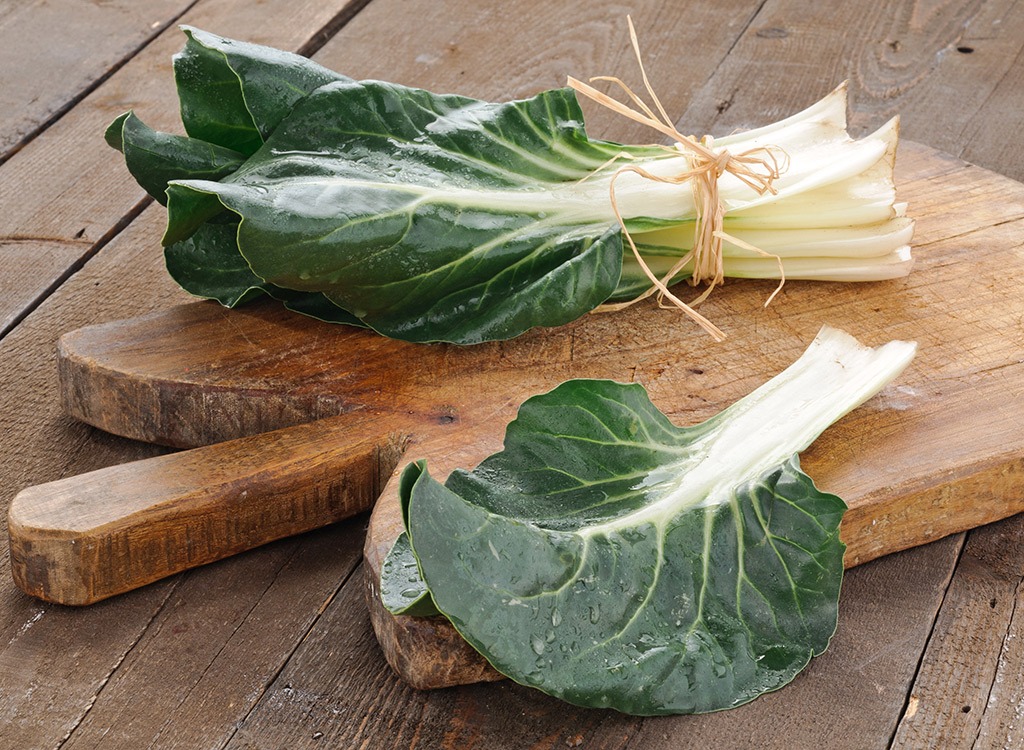
This leafy green is packed with magnesium—a nutrient essential for the biochemical reactions in the brain that increase your energy levels. A 2009 study in the Australian and New Zealand Journal of Psychiatry also found that higher magnesium intake was associated with lower depression scores. And Swiss chard isn’t the only way to get your magnesium hit. Spinach, soybeans, and halibut also contain healthy doses of the energy-enhancing nutrient.
Blue Potatoes
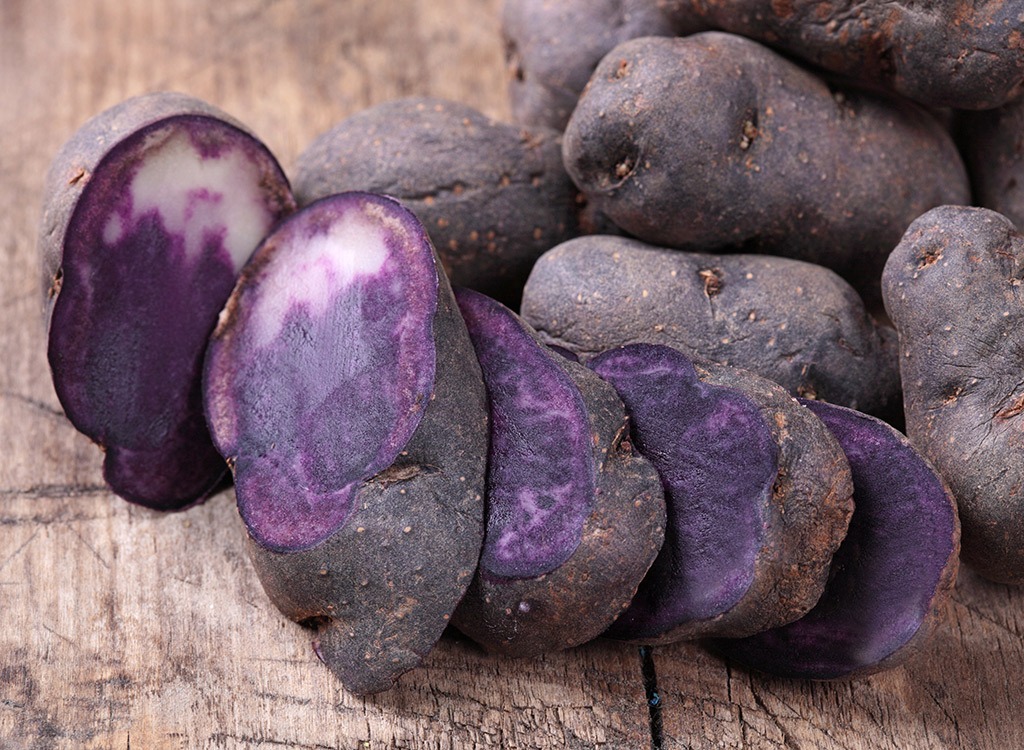
Blue potatoes aren’t a common supermarket find, but they’re worth looking out for on your next trip to the farmer’s market. Blue spuds get their color from anthocyanins, powerful antioxidants that provide neuro-protective benefits like bolstering short-term memory and reducing mood-killing inflammation. Their skins are also loaded with iodine, an essential nutrient that helps regulate your thyroid. Other awesome anthocyanin-rich foods: berries, eggplant, and black beans.
Grass-Fed Beef
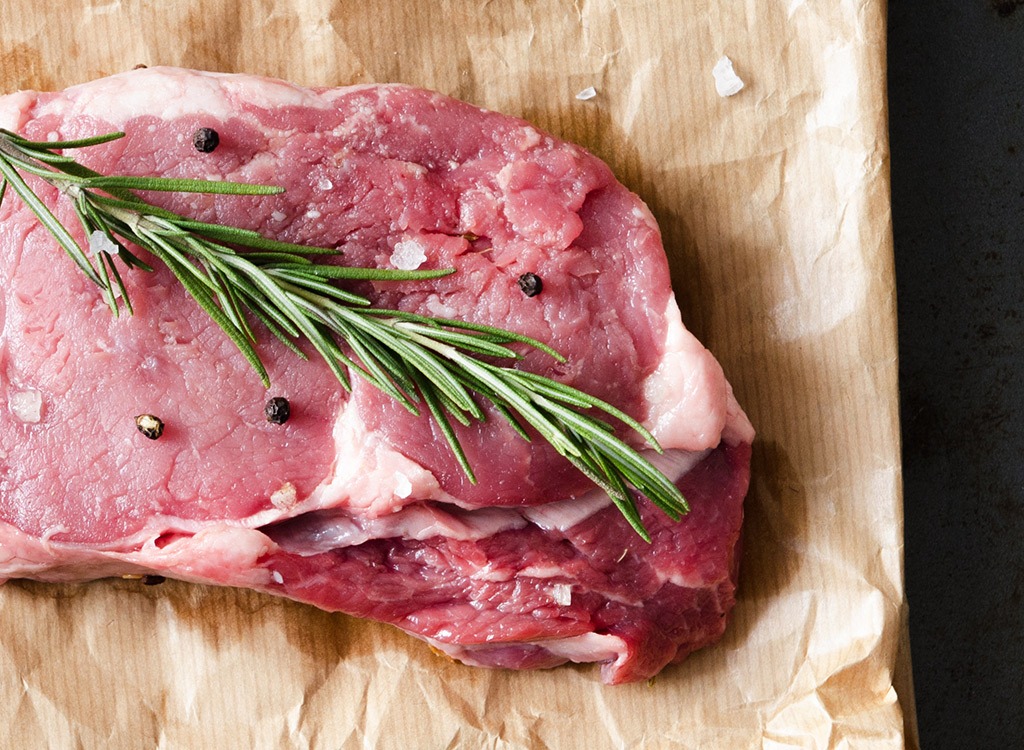
Animals raised on grass pastures boast much higher levels of healthy conjugated linoleic acid (or CLA), a “happy” fat that combats stress hormones and blasts belly fat. Grass-fed beef also has a lower overall fat count and contains higher levels of heart-healthy omega-3 fatty acids compared to grain-feed beef. Another great grass-fed option: lamb. It’s packed with iron, a nutrient vital for a stable mood (the areas of the brain related to mood and memory contain the highest iron concentrations).
Dark Chocolate
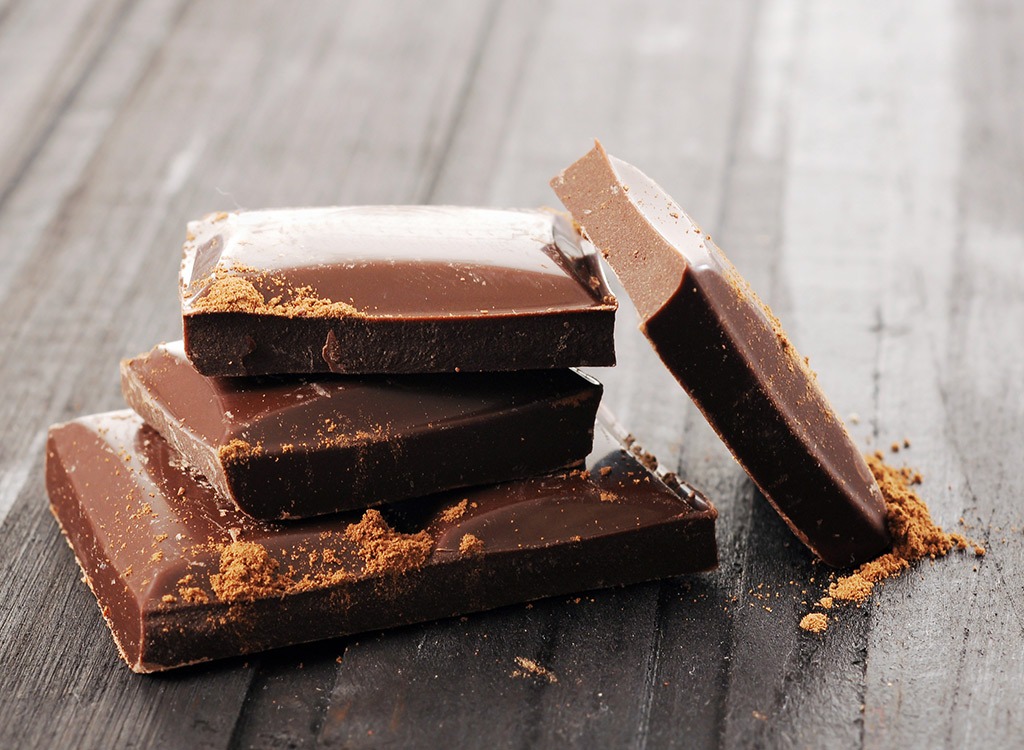
Turns out chocolate’s delicious taste isn’t the only reason it makes you feel so warm and fuzzy. The cocoa treat also gives you an instant boost in mood and concentration, and improves blood flow to your brain, helping you feel more vibrant and energized. But sorry, Snickers bars don’t count. Cocoa is the chocolate ingredient that does your body good, so pure dark chocolate is your best bet if you want the mood-boosting benefits minus the extra belly flab. And don’t overdo it: A recent study published in the Journal of Psychopharmacology found that a few ounces of dark chocolate a day is all you need to reap the benefits.
Greek Yogurt
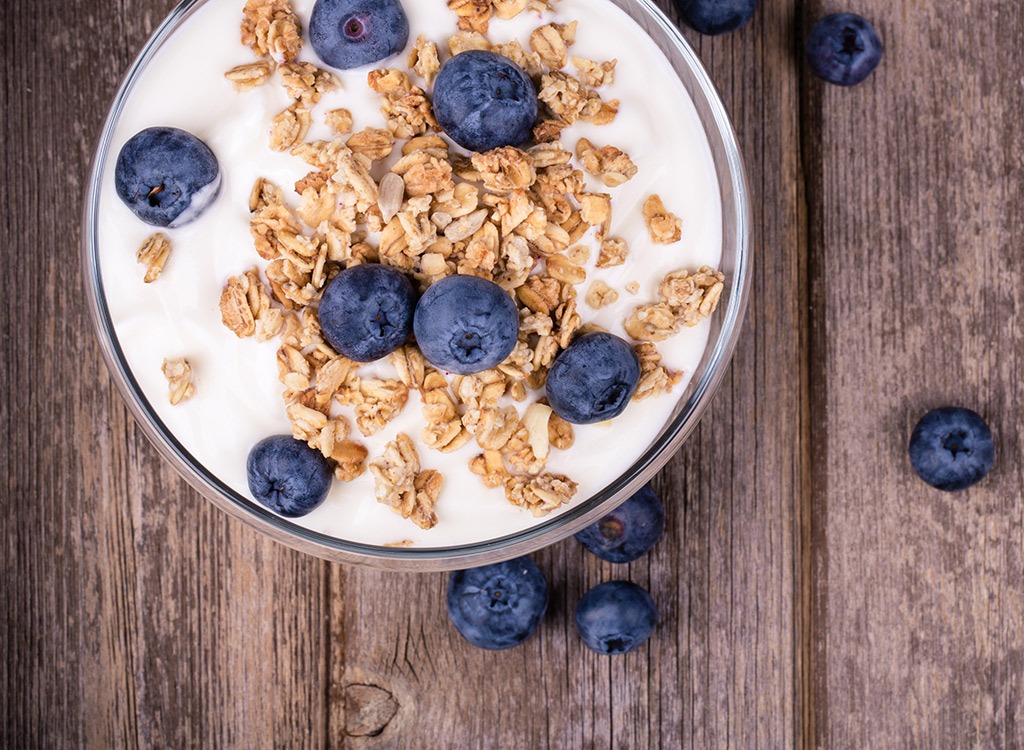
This dairy pick is packed with more calcium than you’ll find in milk or regular yogurt, which is good news for your mood. Calcium gives your body the “Go!” command, alerting your brain to release feel-good neurotransmitters. As a result, inadequate calcium intake can lead to anxiety, depression, irritability, impaired memory, and slow thinking. Greek yogurt also contains more protein than regular yogurt, making it a terrific stay-slim snack. Our Greek-yogurt pick: Fage Total 2%, which packs an impressive 10 grams of protein per serving.
Asparagus
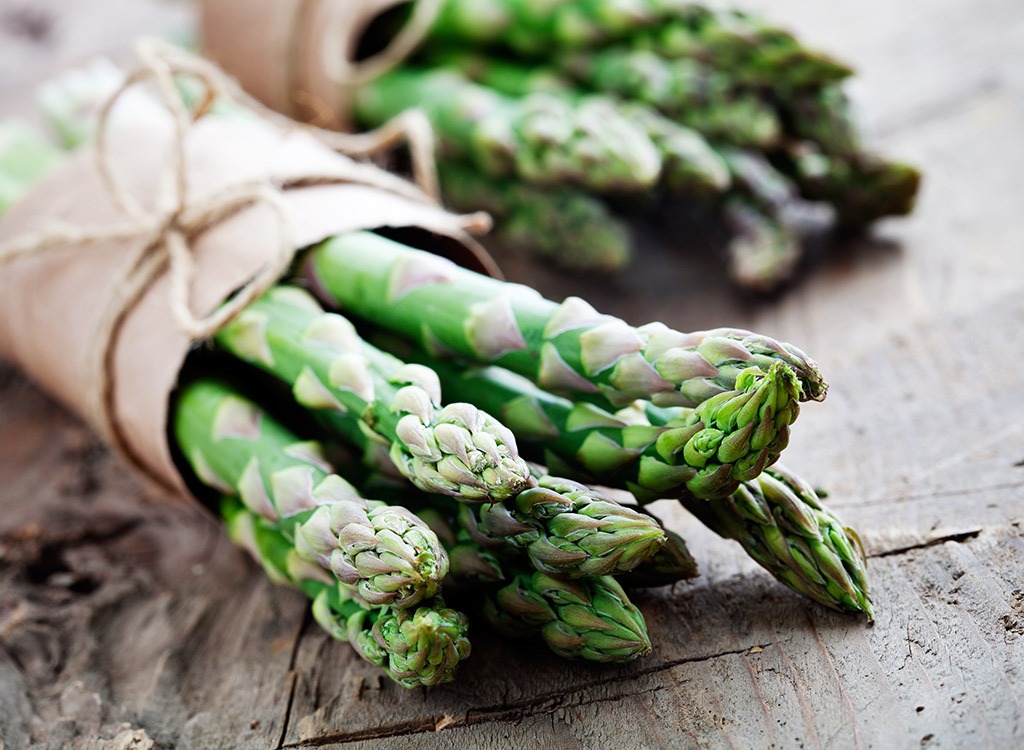
Your mom was on to something when she made you finish those green spears at the dinner table. This vegetable is one of the top plant-based sources of tryptophan, which serves as a basis for the creation of serotonin—one of the brain’s primary mood-regulating neurotransmitters. Asparagus also boasts high levels of folate, a nutrient that may fight depression (research shows that up to 50 percent of people with depression suffer from low folate levels). Some other terrific sources of tryptophan: turkey, tuna, and eggs.
Honey
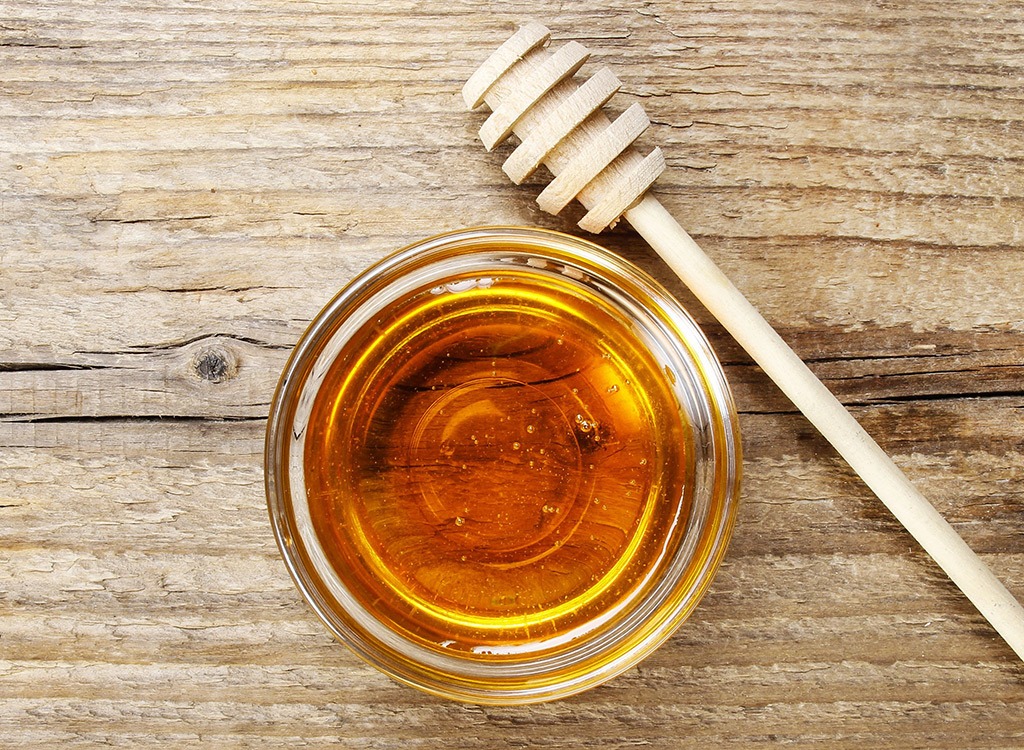
Honey, unlike table sugar, is packed with beneficial compounds like quercetin and kaempferol that reduce inflammation, keeping your brain healthy and warding off depression. Honey also has a less dramatic impact on your blood-sugar levels than regular sugar, so it won’t send your body into fat-storage mode the way the white stuff can. Try adding some honey to your afternoon tea or morning bowl of oatmeal, but don’t go overboard; the sweet nectar has 17 g of sugar and 64 calories per tablespoon, so too much honey can make you heavy, rather than happy.
Cherry Tomatoes
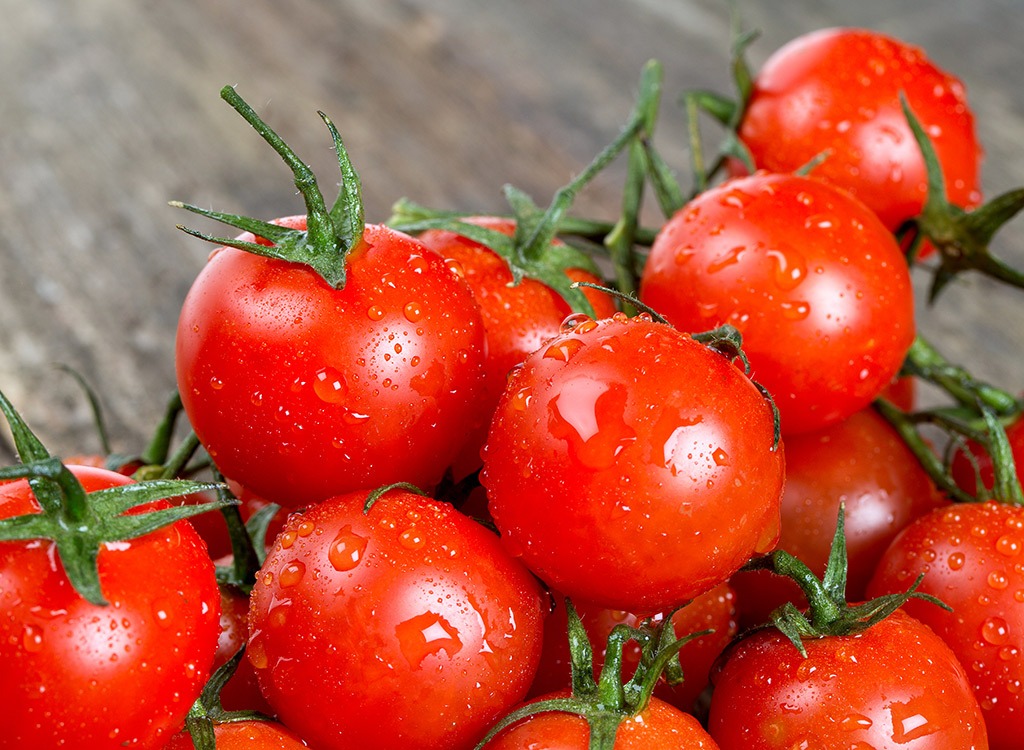
Tomatoes are a great source of lycopene, an antioxidant that protects your brain and fights depression-causing inflammation. And because lycopene lives in tomato skins, you’ll get more of the stuff if you throw a handful of cherry tomatoes into your next salad instead of slicing up one full-size tomato. Or enjoy them on their own with a little olive oil, which has been shown to increase lycopene absorption. And try to go organic whenever possible: Researchers at the University of California-Davis found that organic tomatoes have higher lycopene levels.
Eggs
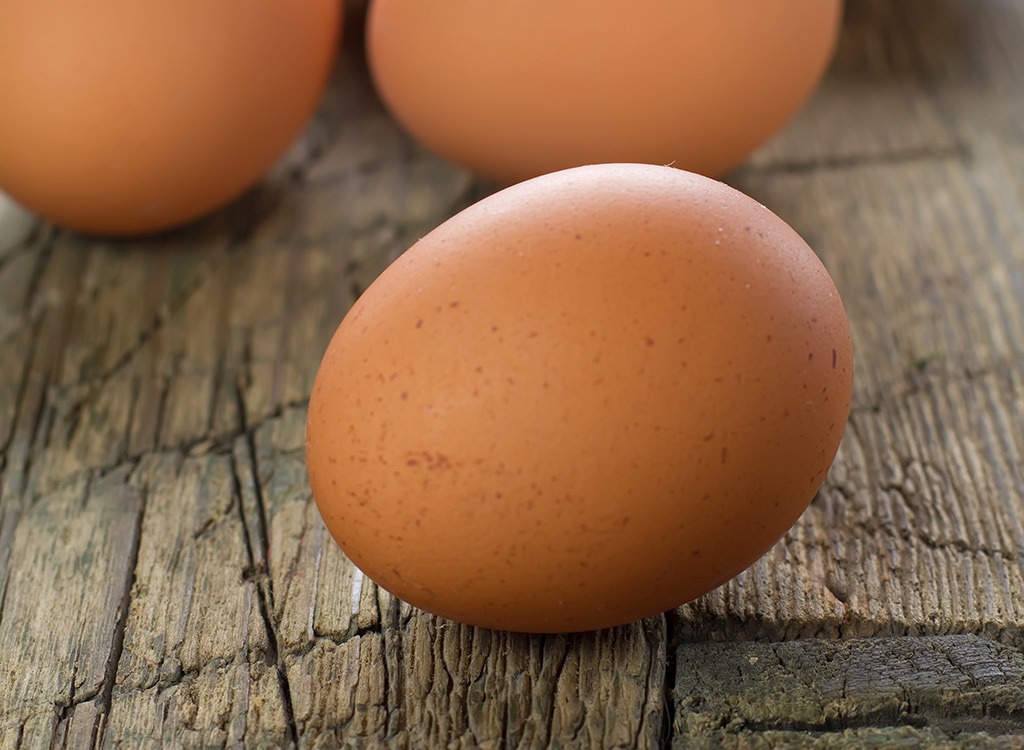
Eggs are loaded with mood-promoting omega-3 fatty acids, zinc, B vitamins, and iodide, and because they’re packed with protein, they’ll also keep you full and energized long after you eat them. Need another reason to crack some shells in the morning? A 2008 study in the International Journal of Obesity found that people who ate two eggs for breakfast lost significantly more weight than those who ate a bagel breakfast. (Tip: Don’t buy into unregulated supermarket-egg claims like “omega-3 enriched” or “free-range.” If you’re looking for the most natural eggs, hit up a local farmer.)
Coconut
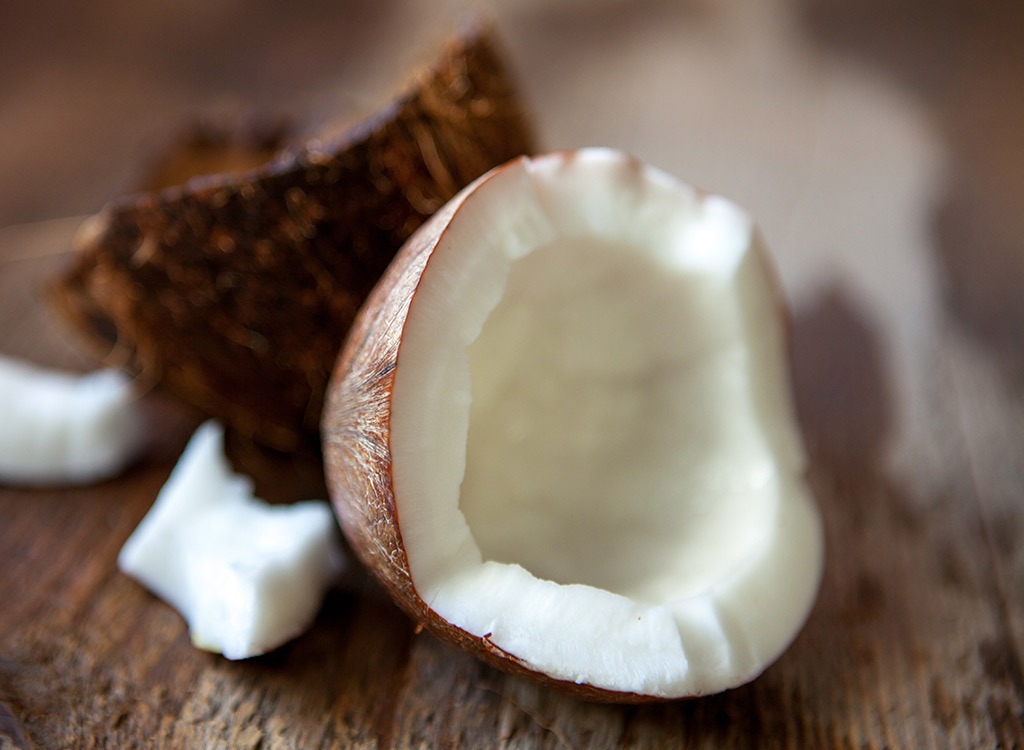
Coconut is chock-full of medium-chain triglycerides, fats that keep your brain healthy and fuel better moods. And although coconut is commonly found in high-calorie desserts, you don’t have to (and shouldn’t) stuff your face with macaroons to get your fix. My suggestion: Try throwing some unsweetened coconut shavings in your oatmeal or yogurt, or toss some in your next healthy smoothie for a flavor boost that will keep you smiling and skinny.








